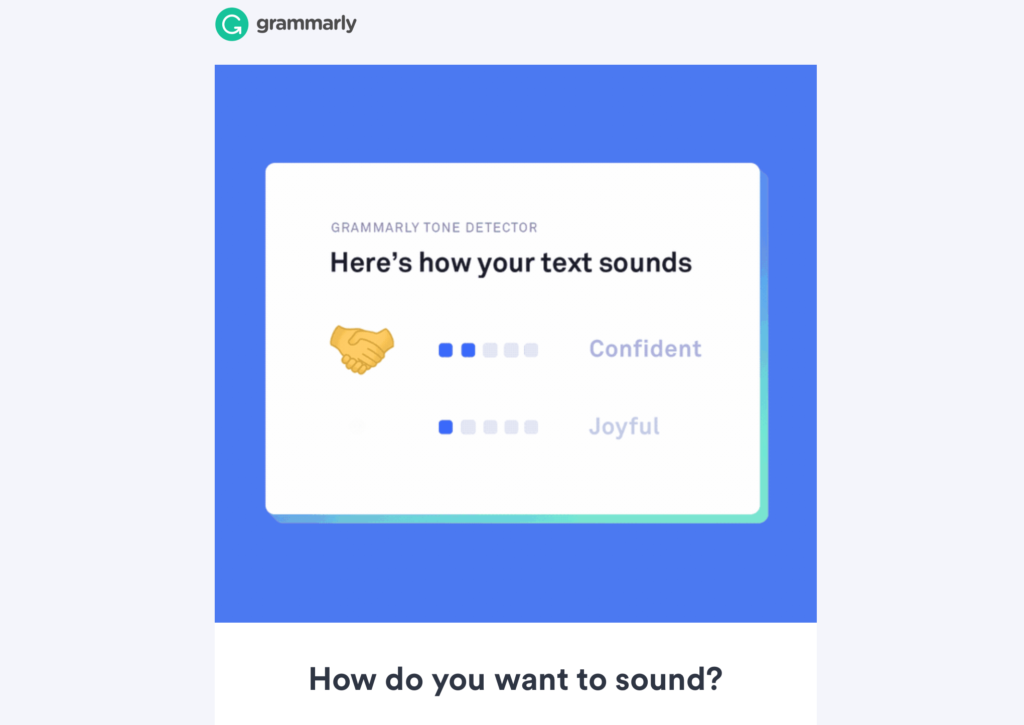I’m smiling as I write this. Within Grammarly.
I’m smiling because I love Grammarly (And because updating my WordPress plug-ins means I can’t get into my site for a bit.) I love Grammarly and I think it’s an awesome piece of kit because I can run everything I write through it to check for errors.
Confidence in an instant
I think it’s an awesome piece of kit because I know of people who, before its launch, were terrified to write about their businesses. People terrified of making a spelling mistake. People terrified – and rendered mute – for fear of showing that they didn’t understand the difference between ‘there’, ‘their’, and ‘they’re’. For fear of looking like they don’t know what they’re doing. Which was ridiculous, because, they sure as hell did.
With Grammarly, people who never quite got the hang of spellings while they were at school (but who are running companies, employing people, and putting food on the table) can write about what they do with confidence. And, in this Brave New Digital World, their doubt in their own ability to put the written word in the right order no longer holds them back.
Tone detection for the win
I’m rattling this off to make a point, and as I do so and glance up, red underlines and suggestions for different words dapple this screen. I’ll get to those later because I want to talk about the email that Grammarly sent out to its subscribers today.
The one that carries the subject line, ‘NEW: Tone detection has arrived! 🤔 🤩 👍’. And which made my heart skip a beat and my mind shift into overdrive.

Because, ladies and gentlemen, ‘Grammarly for Chrome* now includes a tone detector that can help you figure out how your reader might interpret your writing.’
Hmmm, *thinking emoji face* indeed. Because, if a piece of software can detect a tone of voice. Where does that leave those of us who put food on the table by developing said tones of voice?
What a difference a tone makes…
Will Mr MD of a marketing business just use a Grammarly subscription from now on and tell all his employees to hit ‘confident’ and ‘joyful’? Will Mrs Founder of a tech company demand that all her presentations are ‘optimistic’ and ‘friendly’.
And if they did, wouldn’t that be okay?
Well, yes, it would. And the more businesses that adopt Grammarly as a part of their software suite, the more likely it is that we’ll see the end of tedious paragraphs, turgid sentences, and (no, they’re not – trust me) ‘exciting solutions’.
And, instead of it putting copywriters’ jobs at risk, I think it will send even more people to knock on our doors. Why? Because it shows – at the flick of a switch – how powerful a brand’s tone of voice is. And it shows why – with a glance at a screen – it matters.
This year I wrote a website for a marketing company. That’s not really news, is it? But it’s the third marketing company I’ve written for in about 18 months. And they’re all in the same geographical region. Again, not news – but. I’m aware of the importance of conflict of interest. And ensuring that every client gets the same level of service when they commission me.
Goodness from the grassroots
But the good thing about starting any website project with a tone of voice development stage is that you see – and I mean really see – what makes that company tick.
You explore what sets them apart. What’s their purpose, their value proposition and the unique thing they offer their customers that ensures that money changes hands, that work is done and that their customers are happy.
When you dig this deep as a writer, there can never be a conflict of interest. Because what you write, can only reflect what the people in that company have told you.
I’ve invested in the brilliant Voicebox kit, developed by Nick Parker, to add another layer of discovery to my tone of voice development stage. (You can read more here) It’s caused a lot of laughs. And it’s caused some interesting moments of reflection and thought. And it’s resulted in clients engaging in the development process in a much deeper way.






0 Comments